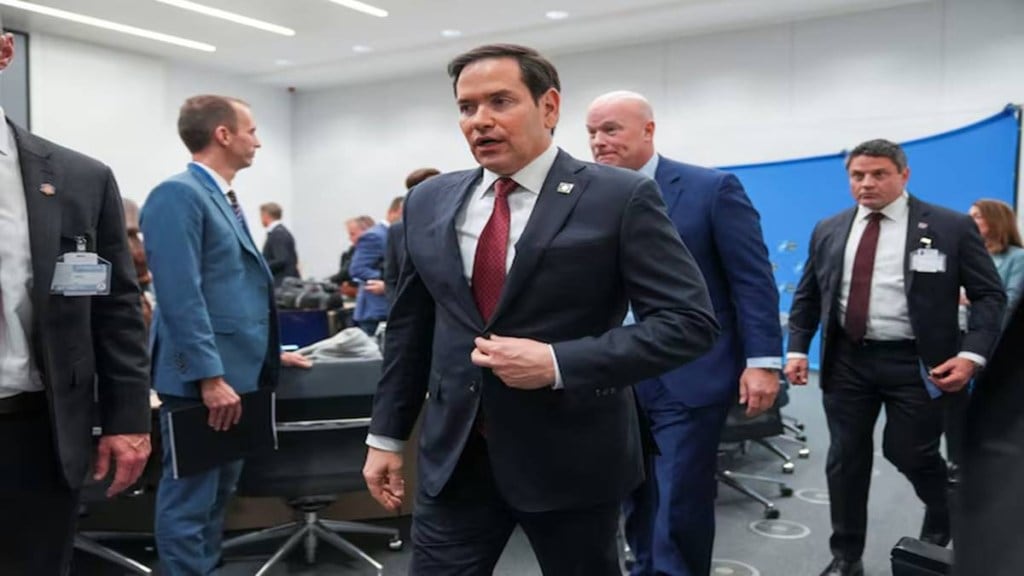US Secretary of State Marco Rubio has appealed “rich countries” like India and China to donate more significantly in terms of the recent earthquakes in Myanmar. He called for broader international contribution in humanitarian crises.
While speaking at NATO headquarters in Brussels, Rubio clarified the US stance on humanitarian assistance. “We are not the government of the world,” he stated. “We’ll provide assistance..but we also have other needs we must balance.” Replying to questions related to USAID’s reduced footprint, he mentioned that operation barriers exist in Myanmar because of the country’s military leadership. “It’s not the easiest place to work. They don’t necessarily allow us to operate in that country the way we want to.”
Rubio highlighted that other wealthy nations must step up. “China is a very rich country, and India is a rich country. Everyone should pitch in. It’s not fair to expect the US to continue shouldering 60 to 70 percent of the world’s humanitarian aid,” he added.
Operation Brahma
India was among the first responders after the March 28 earthquake in Myanmar to launch Operation Brahma within hours of the disaster. A C-130J aircraft delivered the first phase of 15 tonnes of relief, which included food, tents, blankets, and essential medicines. Additional Indian Air Force aircraft followed, carrying 80 NDRF personnel and specialized equipment. Moreover, an additional 70 tonnes of further aid were transported by Naval ships from the Eastern Naval Command and Andaman and Nicobar Command.
By April 1, India had delivered 442 metric tonnes of food supplies, including rice, cooking oil, noodles, and biscuits, to Myanmar’s Thilawa Port. According to the Ministry of External Affairs, ”India stands ready to deploy more material aid depending on ground-level requirements. Operation Brahma reflects India’s commitment to respond swiftly and in full measure to natural disasters in her neighbourhood”
The Quad nations, India, Japan, the US, and Australia, have so far pledged over USD 20 million in assistance by providing medical assistance and relief operations through bilateral channels.
(With inputs from PTI)

